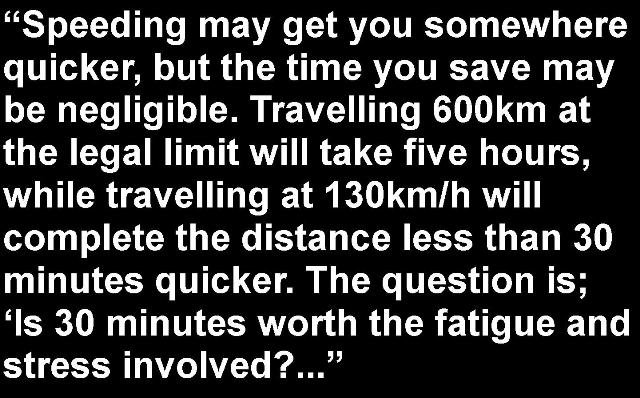DES FENNER (General Manager of Datsun South Africa)
[dropcap]A[/dropcap]pril will soon be upon us. Its traditional long weekends – often the last chance for families to take a break before December – will encourage thousands of people to head for the coast and holiday resorts. It’s also a time of year when a little foresight and planning can go a long way.
 Although there is nothing nicer than swapping the dropping inland temperatures for the warmer climes of the seaside, there are several non-traditional tips that can make a road trip enjoyable and safer.
Although there is nothing nicer than swapping the dropping inland temperatures for the warmer climes of the seaside, there are several non-traditional tips that can make a road trip enjoyable and safer.
Most of us know that our cars should be serviced regularly and have tyres, wipers and lights that are functional, There are, however, several other things to consider adding to your holiday driving list.
Adhere to posted speed limits and do not exceed the national limit on the open road. Doing so will:
- Relieve the stress that comes with exceeding the speed limit and constantly monitoring traffic;
- Help you avoid spending holiday money on speeding fines;
- Prevent falling victim to the increased number of ‘average speed’ car tracking installations that track car speeds over several kilometres;
- Reduce fuel consumption and wear and tear on the vehicle.
 Speeding may get you somewhere quicker, but the time you save may be negligible. Travelling 600km at the legal limit will take five hours, while travelling at 130km/h will complete the distance less than 30 minutes quicker. The question is; ‘Is 30 minutes worth the fatigue and stress involved?’
Speeding may get you somewhere quicker, but the time you save may be negligible. Travelling 600km at the legal limit will take five hours, while travelling at 130km/h will complete the distance less than 30 minutes quicker. The question is; ‘Is 30 minutes worth the fatigue and stress involved?’
Also, isn’t it amazing that early in a journey you will always be overtaken by a car travelling way above the speed limit.
You continue driving at a steady 120km/h. Later, the car that passed you earlier speeds by again. He’s probably had to pull off to buy more fuel. He is driving fast to make up for ‘lost time’ while your average speed is high and you are also using less fuel.
Don’t overload your vehicle. Overloading will:
- Increase braking distance and make it harder to stop in an emergency;
- In a front-wheel drive vehicle, reduce road-holding as weight in the rear of the vehicle will raise the front drive wheels reducing tyre surface on the road;
- Make steering imprecise and more difficult.
 Take regular, short breaks – especially if you are travelling with children. This will:
Take regular, short breaks – especially if you are travelling with children. This will:
- Help avoid the squabbling by kids which can distract a driver;
- Keep you fresher and more alert when driving long distances;
- Add a little time to your journey, which will be less tiring and more enjoyable.
Check the load factor and speed rating displayed on the sidewall of tyres:
- These two limits should not be exceeded. Exceeding speed limits and load factors on tyres for long periods could cause tyre damage and result in an accident.
- Keeping a cooler box loaded with fruit, sandwiches, nuts and fresh water and drinks makes a short break enjoyable and helps keep you alert.
- Hamburgers and other fast foods are heavier and can make you tired – think about what happens after that long Sunday lunch.
Keeping safe on the road is all about common sense. You should never drive long distances if you haven’t had enough sleep, or have been drinking more than the advisable limit of alcohol.
Avoid travelling late at night when most of the traffic is composed of heavy vehicles.
A roadworthy vehicle is a must. At Datsun we always say it is more affordable to service a car regularly, than spend money getting it ready just before a trip.
©Copyright MOTORING WORLD INTERNATIONAL.
All rights reserved. Materials, photographs, illustrations and other digital content on this website, may not be reproduced, published, broadcast, rewritten or redistributed in whole or in part without prior written permission from Motoring World International
Contact: editor.motoringworldng@gmail.com





